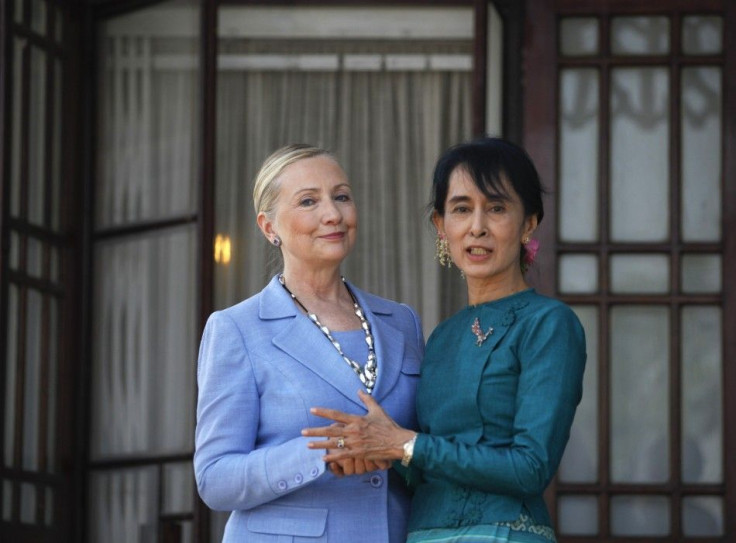Why Clinton's Burma Trip Matters

U.S. Secretary of State Hillary Clinton met with famed opposition leader and Nobel Peace Prize winner Aung San Suu Kyi on the second day of her state visit to Burma on Friday. Clinton's visit to Burma (officially the Republic of the Union of Myanmar) is an effort to improve relations and promote the growth of democracy in a country recently considered to have one of the most repressive governments in the world.
I am here today because President Obama and myself are encouraged by the steps you and your government have taken to provide for your people, Clinton said.
We do see openings today that give us some signs of encouragement. We want to see this country take its rightful place in the world, she added.
Myanmar was led by a military junta from 1962 to 2011, which has effectively and efficiently crushed democratic voices in the country and silenced activists, students and monks. The country has also repeatedly been cited for human rights violations, using child labor and for a lack of freedom of speech by the United Nations.
After a 2010 election, the country switched over to civilian rule a year later. Despite have a new, non-military leader, the country's new leadership is too fresh to be judged, which is why Clinton's visit -- the first senior-level U.S. state visit in more than 50 years -- is so important. Clinton is hoping to not only gauge the country's progress, but also to test the government's reforms.
Additionally, with the United States now looking over President Thein Sein's shoulder, it could help persuade the new president not to fall back to the country's old tricks.
However, some feel that President Obama is throwing his support behind a notoriously oppressive country too soon, and should wait for more progress before cultivating diplomatic friendships.
“Sending the secretary of state is a pretty big deal,” David J. Kramer, the president of Freedom House, told the New York Times. “I do worry that we are moving a little too quickly.”
However, Obama seems to have no intentions of lifting sanctions against the country or making any other foreign policy changes. Clinton did pledge $1.2 million in new aid that would go toward micro-lending schemes and health care.
Clinton met with Suu Kyi, a human rights activist who is now planning a run for parliament, on Friday. The two spoke about Burma's progress and hopes for the future.
If we go forward together, I am confident there will be no turning back on the road to democracy, Suu Kyi said from her home, where she was once held under house arrest during her years as an activist.
We are not on that road yet, but we hope to get there as soon as possible with the hope and understanding of friends.
Burma indeed has a long way to go. President Sein has freed many political prisoners, but there are many more (upward of 1,500) still in detention. Freedom of the press also an ongoing issue, while ethnic violence still occurs.
“Military abuses continue with impunity in ethnic areas,” Human Rights Watch said in a report. “The government continues to suppress dissent through a raft of repressive laws and the lack of an independent judiciary.”
Additionally, rape, a tactic once used to control poor villagers, is still a serious issue in the country. There have been 81 reported rapes since March, according to The Washington Post.
© Copyright IBTimes 2024. All rights reserved.











